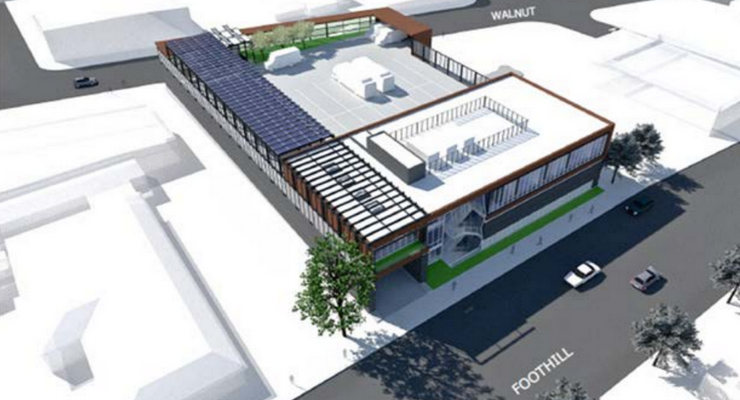
Councilmembers said they want the city’s planned transition to electric buses to kick off earlier than scheduled, even prior to the completion of a city-owned transit maintenance facility for the battery-operated vehicles, during Tuesday’s Municipal Services Committee meeting.
During a discussion of the draft Transit Fleet Electrification Feasibility Study for The Arroyo Verdugo Region Transit Operators heard concerns about the timeline for the implementation of the city’s transition to 100 percent zero emission bus (ZEB) fleets by 2040.
The city’s transportation department is planning to start the transition by 2027, provided that the proposed city-owned infrastructure facility — where either the battery-electric bus (BEB) or hydrogen fuel cell electric bus (FCEB) fleets will be stored and maintained — is completed by 2026.
During the meeting, councilmember Felicia Williams urged the staff to explore other options, including the possibility of temporarily using other city facilities or sharing a facility with Metro or Foothill Transit, so it can start the deployment even prior to the completion of the proposed facility.
“I don’t understand if the buses use DC fast chargers, why can’t they charge at the PWP (Pasadena Water and Power) site or at a public works site temporarily so we could actually get more buses on line,” said Williams.
“Metro and Foothill Transit are already in process with this and their buses come through Pasadena. Is there a way to work with them? Or maybe they put in chargers we can use or we get similar type of technology or some way to partner with those two larger providers that have a much bigger system and more money to accelerate this further?” Williams said, further adding that she would like the project to be accelerated sooner than scheduled.
Vice Mayor Andy Wilson echoed Williams’ statements and urged staff to look at how they could speed up the implementation of the project.
“I’m worried about the timing of that (facility) jamming up the whole project. So I would ask the staff to take Felicia’s comment seriously around shared facilities.”
“We’re part of a network, there are other larger operators and they are in the region. I think we need to think regionally in terms of transit infrastructure and having a kind of transit center feels like an obvious choice or an obvious opportunity for collaboration,” said Wilson.
“I am a supporter of doing this sooner than later,” councilmember Tyron Hampton remarked.
Responding to the committee, the city staff stressed the importance of having a city-owned facility for the charging and maintenance of the electric-powered buses prior to the pilot.
Principal Planner Sebastian Andres Hernandez said that because the possible shared facilities being suggested by councilmembers are outside of Pasadena, it would be a challenge for the buses to go there to charge, given their limited range.
He also said the farther the facility, the greater the operating costs.
The design and environmental documents for the proposed facility proposed at 2180 E. Foothill Blvd. have already been completed, according to staff.
“We really do need a space for the vehicles to charge at a facility,” said Hernandez. “If there was a facility in place sooner, we would be able to transition sooner.”
According to Hernandez, the department will apply for various grants to fund the construction of the facility and the bus fleets.
“There are more grant opportunities for zero emissions than for non-zero emission vehicles.”
“Our initial hope is to apply for grant funding to help pay for the infrastructure and the vehicles,” Hernandez said.
The most recent application was submitted last July as part of the United States Department of Transportation RAISE grant. A grant application for the Federal Transit Administration Bus and Bus Facilities grant due this November is also being prepared by the department.
The draft Transit Fleet Electrification Feasibility Study for The Arroyo Verdugo Region Transit Operators study was developed by the transportation department to meet the California Air Resources Board requirement for all public transit operators in California to transition to 100 percent ZEB fleets by 2040.
The full funding amount needed to support the transition to a ZEB transit fleet by 2037, including the investment in building a transit facility, has yet to be identified.
The city has until July 1, 2023 to adopt the “ZEB Rollout Plan” for Pasadena.


















